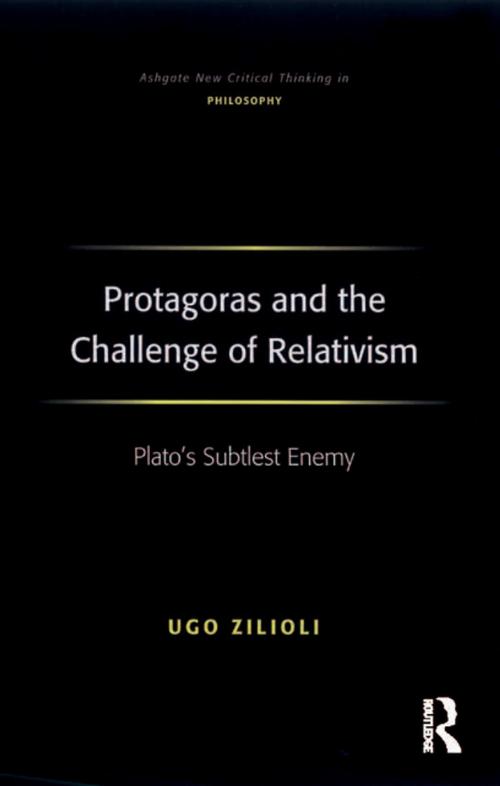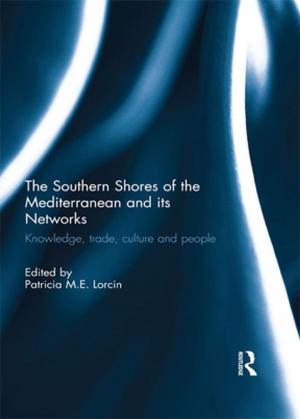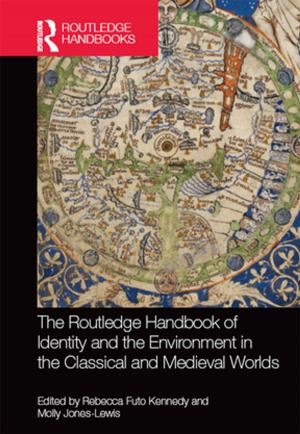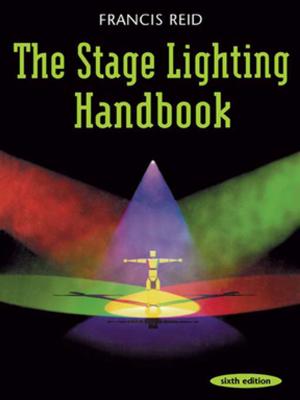Protagoras and the Challenge of Relativism
Plato's Subtlest Enemy
Nonfiction, Religion & Spirituality, Philosophy| Author: | Ugo Zilioli | ISBN: | 9781317074465 |
| Publisher: | Taylor and Francis | Publication: | April 15, 2016 |
| Imprint: | Routledge | Language: | English |
| Author: | Ugo Zilioli |
| ISBN: | 9781317074465 |
| Publisher: | Taylor and Francis |
| Publication: | April 15, 2016 |
| Imprint: | Routledge |
| Language: | English |
Protagoras was an important Greek thinker of the fifth century BC, the most famous of the so called Sophists, though most of what we know of him and his thought comes to us mainly through the dialogues of his strenuous opponent Plato. In this book, Ugo Zilioli offers a sustained and philosophically sophisticated examination of what is, in philosophical terms, the most interesting feature of Protagoras' thought for modern readers: his role as the first Western thinker to argue for relativism. Zilioli relates Protagoras' relativism with modern forms of relativism, in particular the 'robust relativism' of Joseph Margolis, gives an integrated account both of the perceptual relativism examined in Plato's Theaetetus and the ethical or social relativism presented in the first part of Plato's Protagoras and offers an integrated and positive analysis of Protagoras' thought, rather than focusing on ancient criticisms and responses to his thought. This is a deeply scholarly work which brings much argument to bear to the claim that Protagoras was and remains Plato's subtlest philosophical enemy.
Protagoras was an important Greek thinker of the fifth century BC, the most famous of the so called Sophists, though most of what we know of him and his thought comes to us mainly through the dialogues of his strenuous opponent Plato. In this book, Ugo Zilioli offers a sustained and philosophically sophisticated examination of what is, in philosophical terms, the most interesting feature of Protagoras' thought for modern readers: his role as the first Western thinker to argue for relativism. Zilioli relates Protagoras' relativism with modern forms of relativism, in particular the 'robust relativism' of Joseph Margolis, gives an integrated account both of the perceptual relativism examined in Plato's Theaetetus and the ethical or social relativism presented in the first part of Plato's Protagoras and offers an integrated and positive analysis of Protagoras' thought, rather than focusing on ancient criticisms and responses to his thought. This is a deeply scholarly work which brings much argument to bear to the claim that Protagoras was and remains Plato's subtlest philosophical enemy.















